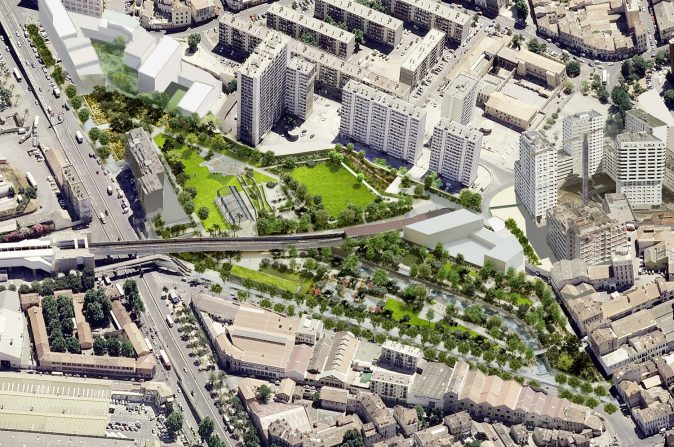Urbanism / France-USA-Today
The Euroméditerranée Project: Urban regeneration at scale
Euroméditerranée is setting a new benchmark for urban regeneration at scale – a blueprint other global cities are beginning to study.

Strategically located at the confluence of Europe, Africa, and the Middle East, Provence offers global investors a consolidated base to access multiple markets. Its growing airport, rail, and port infrastructure – especially the Port of Marseille Fos, France’s largest – makes it a compelling entry and exit point for trade and logistics. “We’re the entry point to Europe and the exit to Africa,” says Martine Vassal, President of the Aix-Marseille-Provence Metropolis.
“We’re the entry point to Europe and the exit to Africa.” – Martine Vassal, President of the Aix-Marseille-Provence Metropolis
Central to this regional transformation is Euroméditerranée, a $8.2 billion urban redevelopment project that ranks among Europe’s largest regeneration initiatives. Launched in the mid-1990s, this program has become a flagship example of how industrial-era landscapes can be reimagined to meet 21st-century needs. Spanning more than 500 hectares of formerly neglected port and industrial zones, the project embodies a comprehensive vision for urban sustainability, economic diversification, and inclusive development.
What makes Euroméditerranée particularly innovative is its adoption of the “15-minute city” concept – an urban model where residents can access essential services, work, and leisure within a short walk or bike ride from their homes. This model not only enhances quality of life but also supports environmental sustain ability by reducing car dependency and carbon emissions. The district’s bioclimatic architecture, extensive green real estate developments, and high-quality public spaces are attracting both international real estate investors and forward-thinking developers.
The regeneration zone is also becoming a magnet for global innovation. Euroméditerranée has actively fostered technopoles – technology hubs – with a focus on healthcare, environmental technologies, and digital innovation. These clusters are drawing start ups, scale-ups, and multinational companies eager to collaborate within a dynamic ecosystem. Institutions like the World Bank and United Nations agencies have also shown interest in this smart, adaptable urban model, under scoring its international appeal.
“This is the new Marseille,” Vassal emphasizes. “A city that’s reinventing itself not just with infrastructure, but with ideas.” By integrating climate resilience, economic opportunity, and social inclusion, Euroméditerranée is setting a new benchmark for urban regeneration at scale – a blueprint other global cities are beginning to study.
